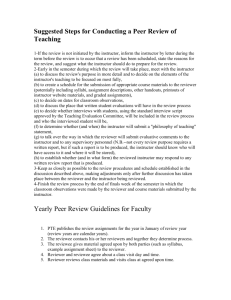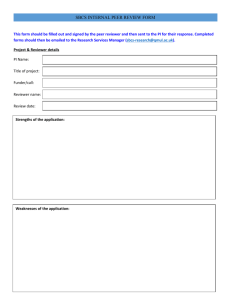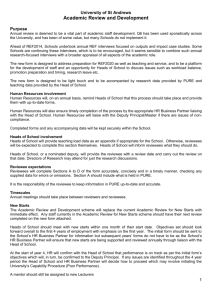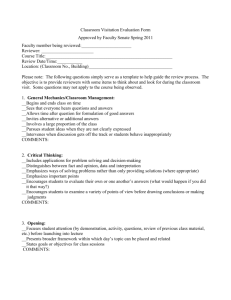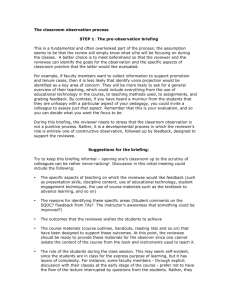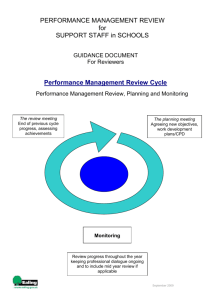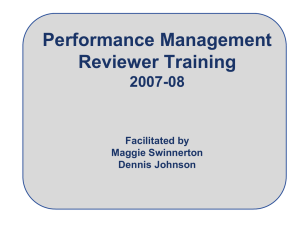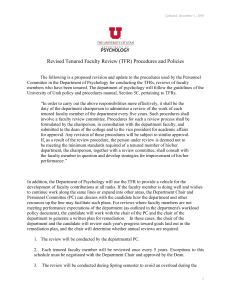Learning Block 2: Conducting the meeting
advertisement
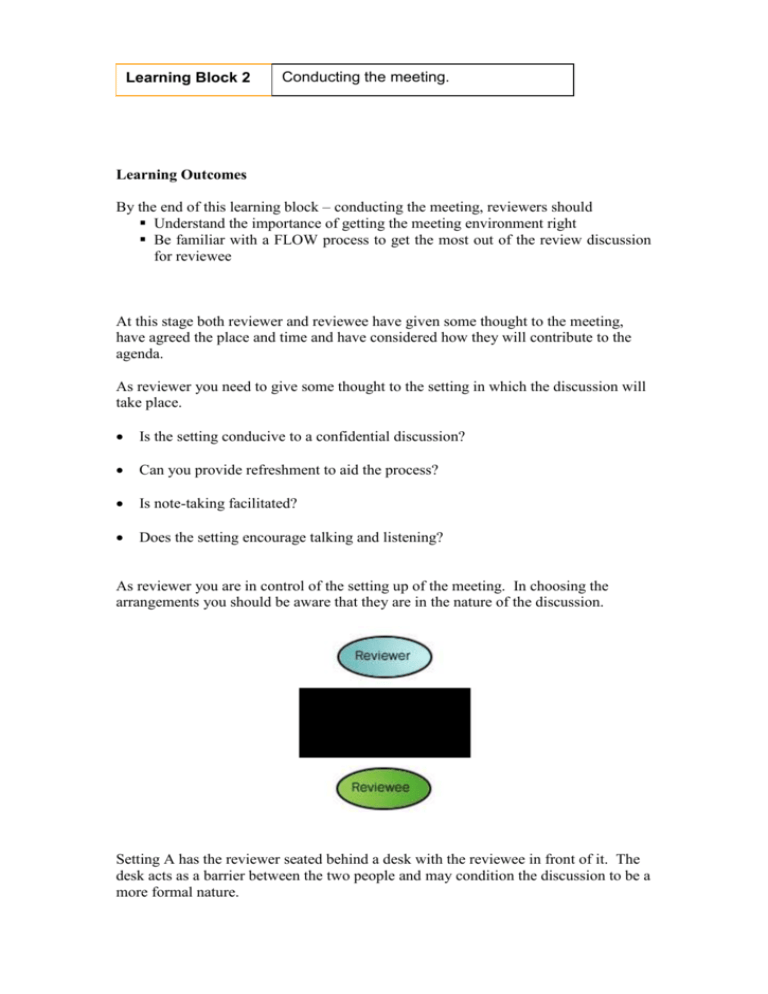
Learning Block 2 Conducting the meeting. Learning Outcomes By the end of this learning block – conducting the meeting, reviewers should Understand the importance of getting the meeting environment right Be familiar with a FLOW process to get the most out of the review discussion for reviewee At this stage both reviewer and reviewee have given some thought to the meeting, have agreed the place and time and have considered how they will contribute to the agenda. As reviewer you need to give some thought to the setting in which the discussion will take place. Is the setting conducive to a confidential discussion? Can you provide refreshment to aid the process? Is note-taking facilitated? Does the setting encourage talking and listening? As reviewer you are in control of the setting up of the meeting. In choosing the arrangements you should be aware that they are in the nature of the discussion. Setting A has the reviewer seated behind a desk with the reviewee in front of it. The desk acts as a barrier between the two people and may condition the discussion to be a more formal nature. In setting B the reviewer and reviewee are seated facing each other, on a level and without a significant barrier between them. This type of arrangement should make for a more informal and relaxed discussion. Memo Neither setting is good or bad, however it is worth considering which might be most appropriate for you and your reviewee. F L O W – an approach to conducting review discussions that will lead to constructive and productive dialogue and outcomes Reviewers will be aware that effective discussions move through a number of phases from introduction to conclusion. In considering how you might move towards a productive outcome you might find the FLOW model a useful framework: F Find the challenge. At the outset you need to rehearse the purpose of the meeting and ensure that you are both working towards the same outcomes. This phase provides you, as reviewer, with the opportunity to affirm your commitment to supporting the reviewee in achieving the agreed objectives. L Look at Reality. The stocktaking phase of the discussion provides the baseline for the subsequent dialogue. In this phase two realities will be considered. Firstly it provides an opportunity for reviewees to describe how they presently feel about their work and to articulate their aspirations for the future - their reality. The reviewer’s role is to listen actively and to note important strands for the objective setting and support phases. The second reality is the School Development Plan; here the reviewer needs to be more proactive in pointing to those parts of the plan to which the reviewee is likely to make the most obvious contribution. O Open possibilities Now we come to the central phase of the discussion, where both reviewer and reviewee are seeking to achieve the balance between the interests of the teacher and the objectives set out in the SDP. In this phase the reviewer will need to build on the views which the reviewee has expressed in the introductory phase. The discussion should move from the consideration of a wide variety of options to the point where those possibilities are becoming refined into specific objectives. W Win commitment. Having agreed the objectives and the next steps the concluding phase of the discussion is to confirm and affirm. The reviewer should confirm that the objectives and success criteria are clearly understood. These will be recorded in the planning record The need for support should be discussed and agreed. The timetable for monitoring and review should be considered. Observation recording documentation should be agreed The reviewer should arrange to give the reviewee a written statement of the agreement using the planning record proforma. Finally both reviewer and reviewee should affirm their commitment to the agreement which they have reached. Whenever a review discussion FLOWs the outcomes for both the reviewer and reviewee can be very positive and the benefits include for the reviewee Raising standards Better understanding of the job within the context of the school development plan Improved feedback and recognition of achievement regular review staff and professional development needs Improved job satisfaction
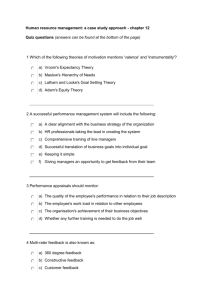
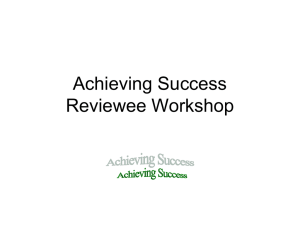
![Our Proposed Teachers' Pay Policy Made [as] Simple](http://s3.studylib.net/store/data/009449663_1-ace1f548d59156f3c612bc39171242c1-300x300.png)
